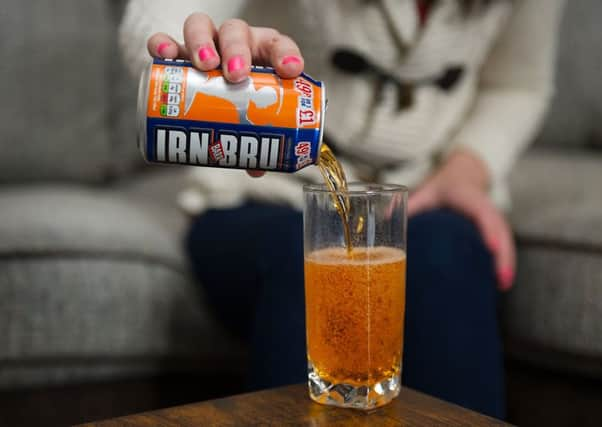Leader comment: All we are saying is give new Irn-Bru a chance


So Scotland’s “other national drink” is changing. Anyone who remembers the disastrous attempt to introduce “New Coke” in the 1980s knows just how perilous changing a much-loved recipe can be.
The backlash over the plan to cut the sugar content of Irn-Bru by more than half has already begun – with fiercely loyal customers stockpiling cans, raising a petition and establishing a Save Real Irn-Bru campaign. This is understandable but there is a good reason for the change – an attempt to save lives by reducing what are undoubtedly appalling rates of obesity.
Advertisement
Hide AdAdvertisement
Hide AdIt is estimated that cutting the amount of sugar in soft drinks by 40 per cent would stop 1.5 million people from becoming obese, a condition linked to a string of serious diseases, including heart disease, cancer, diabetes, stroke, asthma, osteoarthritis and depression.
When the UK Government first announced the sugar tax plan, Coca-Cola went on the offensive, claiming it would do little to cut rates of obesity and simply add to people’s cost of living.
But AG Barr quickly ruled out joining a threatened move to take legal action. Instead it has decided to reduce the sugar level in Irn-Bru to below the amount that incurs the tax. Scots will not pay more for their favourite fizzy pop and will not pile on so many pounds as a result of drinking it.
As a leading academic warned in The Scotsman yesterday, we have created an “obesogenic environment” in which it can be hard to avoid eating and drinking things that will make us fat.
The sugar tax was created by a democratically elected government with the best of intentions – to make us healthier and happier. The test now will be how the market will respond. Will sales of Irn-Bru go up as people fail to notice the difference – the experience of most people in tests, according to Barr – and its more sugary rivals are forced to put up their prices?
Or will the company be forced by customer demand to return to its original recipe as the drink threatens to lose its place in our nation’s hearts? Some people seem to have made up their minds already, but, for the sake of everyone’s health, we should give the new Irn-Bru a chance. Who knows, maybe if the lower-sugar version takes off, it could spark a wider culinary revolution in which having 8.5 teaspoons of sugar in a soft drink is as odd as the same amount in a cup of tea.
